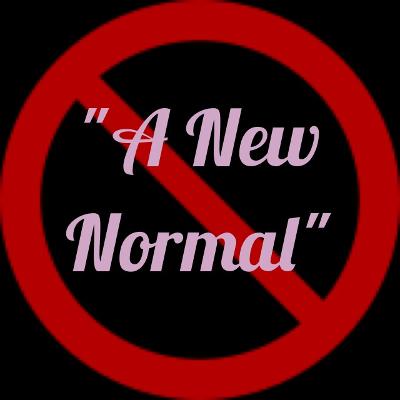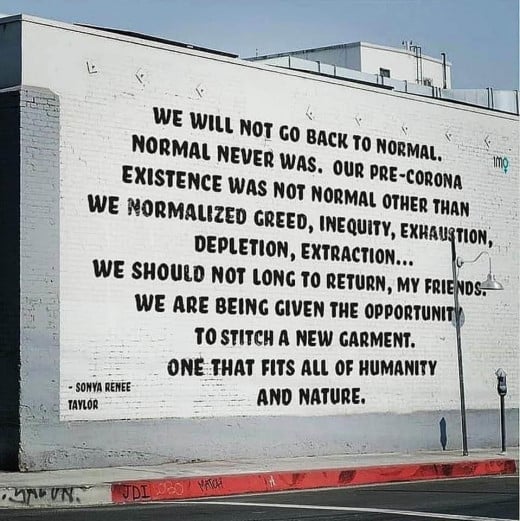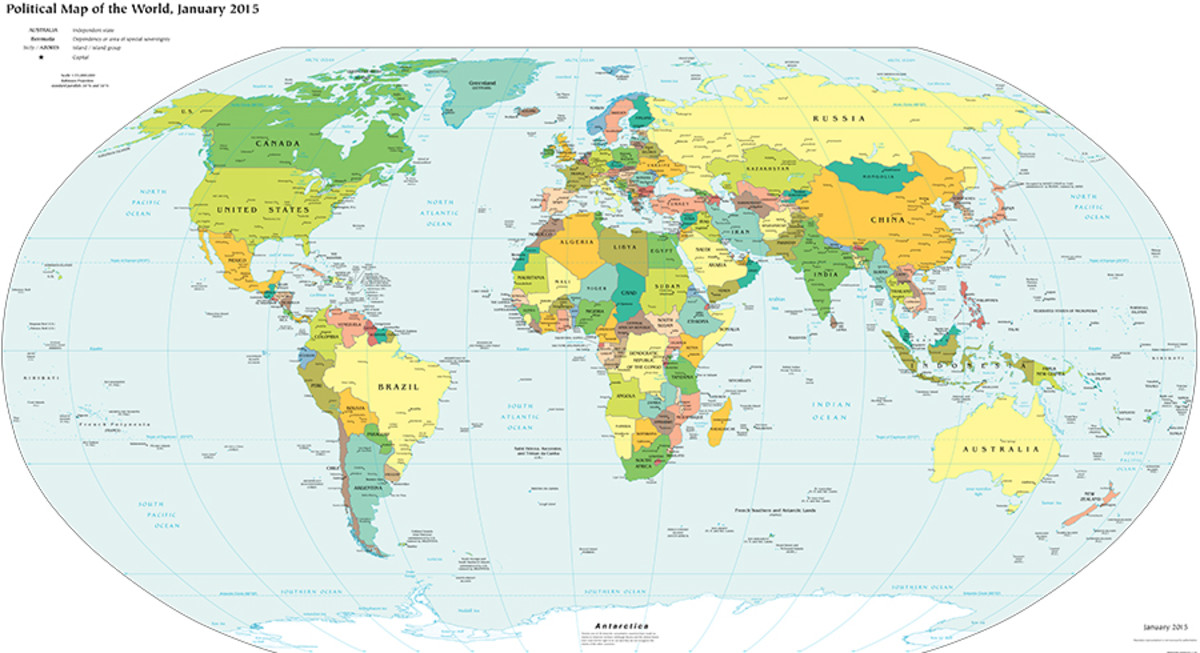Why People Should Stop Talking About "A New Normal"

I don't like clichés. I don't use them. I don't like hearing them. I found a distaste for clichés when I was in the fifth grade. I heard the bigger kids at school using a cliché so much that it stuck in my head. When my stepfather heard me saying it at home, he reprimanded for using that vulgar expression. I had no idea it was vulgar until he explained to me what the older kids were saying. Therefore, to this day I do not use clichés especially when I don't know what they mean.
So, what is a cliché?

Cliché: Definition
A cliché, or cliche, is an expression that people have overused just because others are using it. Clichés lose their original meaning when people use it too often. They become trite and irritating when they are said over and over in conversations.
Typically clichés may or may not be true. They are usually said because somebody heard them and began using them because they thought they were cute. Then others picked up the saying and began using it. The danger is using clichés is that some people who use them might not have any idea what they mean like I didn't know when I was in fifth grade.
Today, clichés are prevalent phrases used in literature, advertisements, and in everyday conversations to get attention. Although critics like me advise against using clichés so often, they are very popular and are unlikely to go away.
"A New Normal"
These days the cliche "a new normal" is constantly on some people's lips. They use it in reference to the coronavirus pandemic that has spread all over the world. They predict and wish for "a new normal."
There are a lot of things wrong with saying "a new normal." First of all, the expression is a paradox. Something can't be "new" and "normal" at the same time. Either something is new or it is normal. It can't be both.
Something new is something unprecedented. It is something that has never happened before. On the other hand, something normal is a tradition because it happens all the time or most of the time.
Working from home is not a new normal. About 43% of Americans worked from home long before the coronavirus lockdown.

Biblical References
Expecting a new normal is like putting new wine into old wineskins. According to the parable of Jesus, "No man putteth new wine into old wineskins; else the new wine will burst the container and be spilled. (Matthew 9:14-17, Mark 2:21–22, and Luke 5:33-39). In other words, new wine should go into new containers.
When the coronavirus pandemic is over, some things that people consider to be "normal" should be left behind. Isaiah 43:18-19 tells us, “Forget the former things;
do not dwell on the past. See, I am doing a new thing!"
People and especially church leaders should adhere to the above scriptures and not go back to their former things that were not operating to the full capacity anyway. They should evaluate and consider why they were doing certain things. Church leaders should do what's important for the body of Christ and do those things that will bring more people to Jesus.
Things That Have Already Changed
Many things have already changed instead of being part of a "new normal." More and more people are working from home. School children are doing their school work on computers at home. There are new shopping rules and new rules about socializing.
People are required to wear face masks in most states. Gatherings are limited to only 10 people. Churches are having worship services online. Grocery stores and other establishments have printed instructions on the floor for customers to maintain social distancing by staying six feet away from other shoppers. Cashiers are surrounded by plexiglass to keep customers from getting close to them.
Since all those changes are already in place, what will be the "new normal" that people are talking about? It is wise to pay attention to what is going on now instead of waiting for a "new normal."
A New Reality
So, what is better to say than "a new normal." Saying "a new reality" is much better and is true. It will be "real" instead of being "normal."








